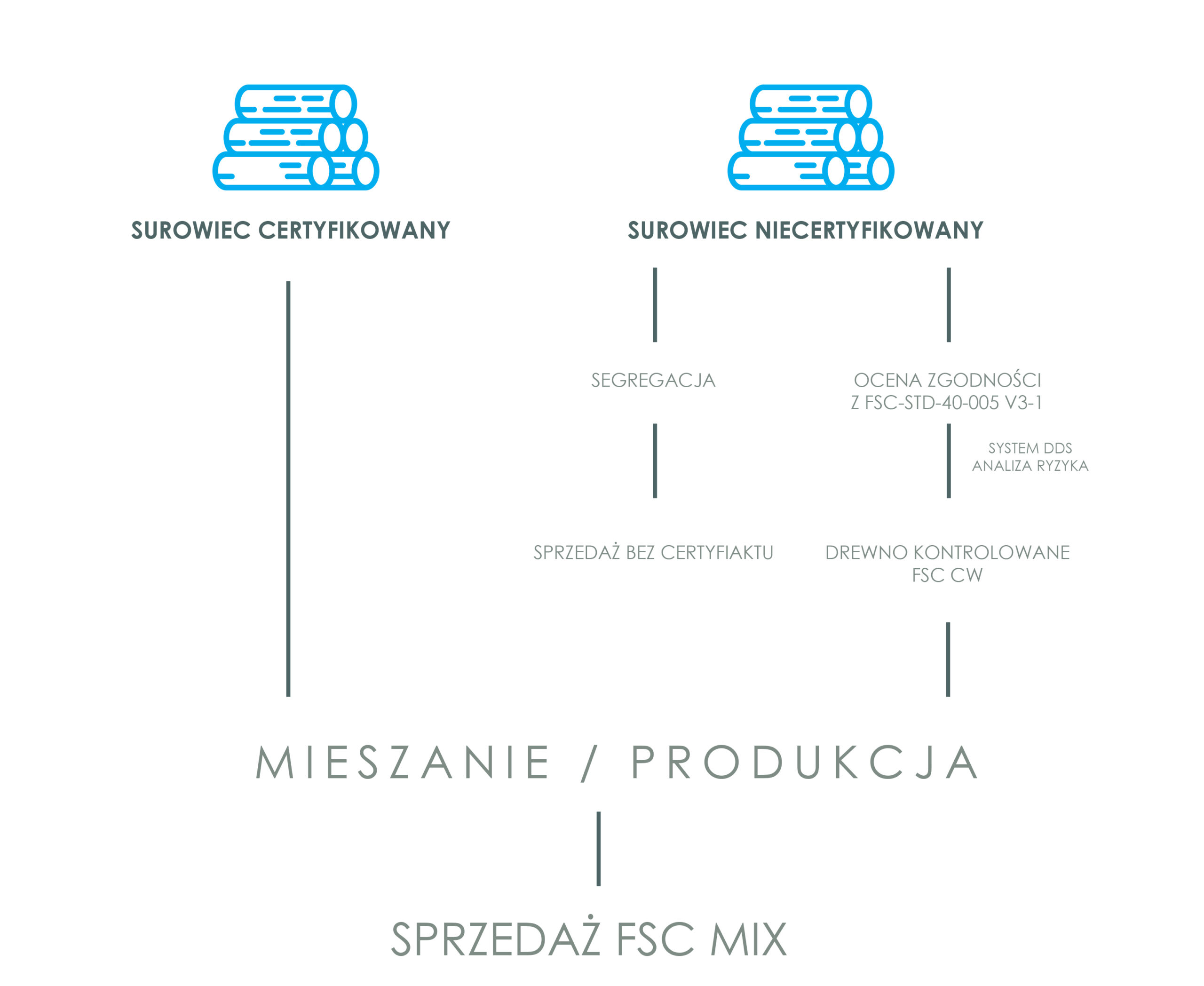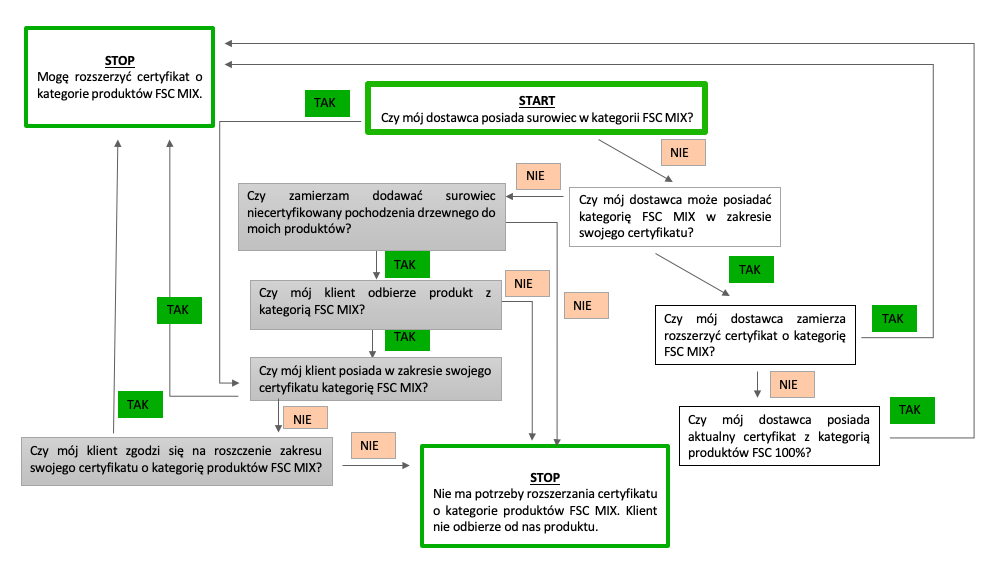
One of the most desirable FSC categories is FSC 100%. This means that finished products that are sold with the FSC 100% claim contain 100% FSC certified wood. The FSC system, like other chain of custody systems, requires that a manufacturer who wants to sell products with the FSC 100% claim obtains raw material from a supplier who is also FSC certified with the FSC 100% product category. And that during the storage and production process, certified raw material is separated from non-certified raw material. Although using 100% certified raw material seems to be the easiest in terms of logistics, some companies need to extend their certification scope to products with the FSC MIX category.
If the company’s supplier is only able to sell products with the FSC MIX category, then the recipient, not having this category in the scope of his certificate – cannot use it for production and sell it with the MIX category. Even if he has an FSC certificate with the FSC 100% category. After receiving in the warehouse – the product with the FSC MIX statement receives the status of non-certified.
The supplier has the FSC 100% category in its certificate, but must downgrade it to the MIX category because it wants to sell raw materials with a lower category.
For most companies this can be a serious problem, because if the FSC certificate is suspended or lost by the supplier of wood raw material, such material cannot be used to produce certified products. However, it can be given MIX status (FSC Mix Credit or FSC Mix x%).

Depending on the reason for which we want to extend the scope of the FSC certificate, the company will have to follow different paths.
However, before this happens, a few questions need to be asked:
If the customer’s minimum requirement is FSC MIX and they have such a statement in their certificate, we can start the process of extending the FSC certificate to the MIX product category.
However, if our client does not have the FSC MIX statement in the scope of his certificate, he will also have to change the scope of his certificate.
Below we present an infographic that will help you through the initial decision process to extend the FSC certificate to the MIX category.

You must:
1. Implement the requirements of the FSC-STD-40-005 v3-1 standard, i.e. the requirements for Controlled Wood, i.e.:
– develop Due Diligence System (DDS) procedures for Controlled Wood,
– assess the risk of supplying uncertified wood in terms of compliance with the Central National Risk Analysis for Poland, i.e. FSC-CNRA-PL V1-0,
– minimize the risk identified for criterion 2.2 FSC-CNRA-PL V1-0 (Risk identified for freedom to organize in free trade unions and to collectively bargain on wages).
2. Implement a percentage or credit system that allows mixing certified and non-certified wood; or create a separate FSC CW product group for sale in, for example, a transfer system
3. Contact the certification body to extend the scope of the certificate to include the new FSC-STD-40-005 v3-1 standard and the requirements of the new claims control system (percentage/credit);
The Academy offers the following support to certificate holders:
• Text of the standard FSC-STD-40-005 V3-1 (English, Polish).
• Content of the Centralized National Risk Analysis for Poland (FSC-CNRA-PL V1-0 EN) – required for classification of non-certified raw material as controlled wood.
• Prepare Due Diligence System (DDS) documentation for and publicly disclose the DDS summary.
• Inclusion of a credit settlement system and for production purposes enabling the mixing of certified and non-certified raw materials (CW).
Anyone interested in receiving support is welcome to contact the Academy directly.
Write: biuro@onepeterson.pl Call: 722 005 933
Fill out the form: